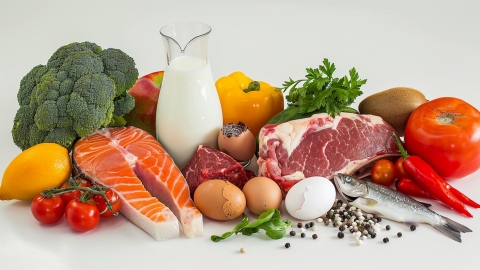What foods can be eaten for gout?
Patients with gout can choose foods such as low-purine vegetables, fresh fruits, high-quality protein, whole grains, and sufficient fluids. These foods help reduce uric acid production, promote uric acid excretion, and assist in controlling gout attacks. If severe joint pain, redness, swelling, or persistently elevated uric acid levels occur, prompt medical attention is recommended.
1. Low-purine vegetables: Such as cabbage, celery, cucumber, and tomato. These vegetables are low in purines and rich in dietary fiber, providing essential nutrients without increasing the body's uric acid burden. It is advisable to cook them with minimal oil and avoid frying.
2. Fresh fruits: Such as apples, pears, oranges, and cherries. Cherries have been studied and shown to potentially help reduce the risk of gout attacks. The vitamins and water content in fruits also support metabolism. However, excessive consumption of high-fructose fruits should be avoided.

3. High-quality protein: Such as eggs, low-fat milk, and sugar-free yogurt. These foods are low in purines and meet the body’s protein needs, helping prevent muscle loss due to inadequate protein intake. They are suitable for regular consumption by gout patients.
4. Whole grains: Such as oats, brown rice, and millet. Replacing refined rice and flour-based staples with whole grains provides abundant dietary fiber, which helps slow glucose absorption and indirectly supports uric acid control. They also supply sustained energy to maintain bodily functions.
5. Sufficient fluid intake: Drink more than 2,000 mL of plain water or light tea daily. Adequate hydration increases urine output, promoting the excretion of uric acid through urine. Avoid sugary beverages, as fructose may impair uric acid metabolism.
Regular meals should be maintained to avoid overeating. Portion control at each meal is important. Additionally, attention should be paid to cooking methods—steaming, boiling, and stewing are preferred over frying, grilling, or roasting—to help maintain stable uric acid levels.




